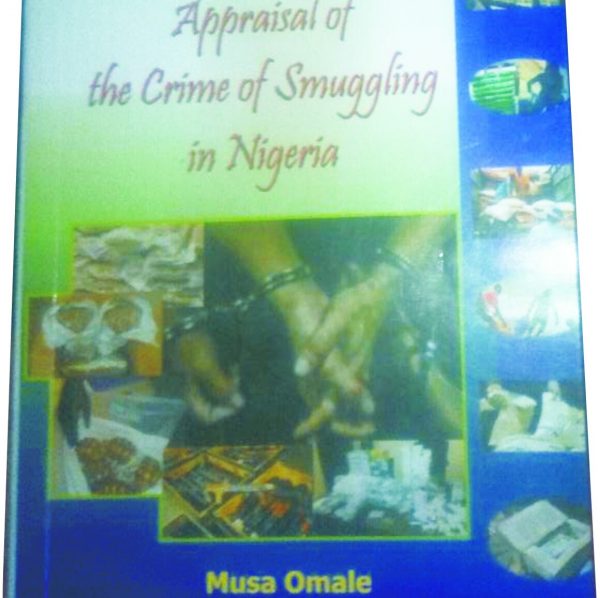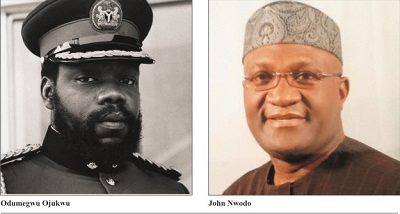Unveiling The Spirit Of Smuggling (Book Review)
There hasn’t been any bold attempt at combating smuggling in Nigeria like the book and in the book: “Appraisal of the Crime of Smuggling in Nigeria”, authored by a serving Customs officer with academic temperament and infectious dedication to national service and patriotism.
The 388 pages book could not have come at a better time than now, when arms smuggling has become a part of the normal life in the country. Now, when smuggling has become a profession and a career path to many especially most children who live and grow up around border towns. Many kids in recent years have grown to embrace smugglers as role models , while most Nigerians prefer to buy smuggled goods in preference for legally imported goods, either because of price advantage or the toga of “ imported” product which is usually seen as being of best standards and quality.
Most disheartening is the findings that the Customs personnel and officers also aid and abet smuggling for pecuniary reason. It is indeed a “Season of Anomie” for the economy considering its huge economic mess on the nation’s treasury. Last week, the Comptroller General of Customs , Col. Hameed Ali (rtd) accused the multinational shipping companies operating in Nigeria of conspiring with shippers to smuggle arms into the country, and further threatened to advise President Mohammedu Buhari to shut the Seme border because immeasurable quantity of prohibited goods find their ways into Nigeria through numerous unapproved routes.
The 388 pages book of nine chapters attempts, therefore, to x-ray the provision of the Customs and Excise Management Act(CEMA) in relation to the crime of smuggling, while enumerating the major effects of smuggling to include huge revenue loss, money laundering, exposure of local industries to unfair competition with their foreign counterparts as well as insecurity of life and properties.
As smuggling in Nigeria assumes a hydra-headed posture the only weapon of fighting its numerous categories remains the instrument of legislation, which is CEMA. However, CEMA which remains a colonial vestige having been enacted in 1958 prescribes some punishments for offenders which include prosecution of offences, forfeiture of items, capital punishment, etc.
The book at this point affirms that CEMA 1958 has lost touch with the realities of the day in modern customs administration and as such cannot combat the digital nuances in the menace of smuggling of this age.
The author, Assistant Comptroller of Customs, Musa Omale, Ph.D also takes a look at the factors that promote smuggling, examines the control measures and makes a case for a legislative review of CEMA that would enhance the fight against smuggling .
However, Omale seems to have unconsciously notes that despite the avowed success of the Nigeria Customs Service(NCS) in revenue generation over the years, it has failed in legislative politics and by extension the war against smuggling. This is a key minus!
Omale is a lawyer but his language of delivery in this book is simple and fluid, perhaps because of his Public Relations training over time in the line of duty.
It is recommended for trade consultants, journalists, Customs officers for training, students, researchers and maritime operators.
So, all roads lead to the Rock View Hotel , Wuse 2 Abuja by 10 am on November 30, 2017 for the historic presentation of the book, which will help change the narrative of smuggling and its spirit in Nigeria. The CGC who graciously wrote the book’s Forward will chair the event.
Copyright MMS Plus.
All rights reserved. This material, and other digital content on this website, may not be reproduced, published, broadcast, rewritten or redistributed in whole or in part without prior express written permission from KINGS COMMUNICATIONS LIMITED.








